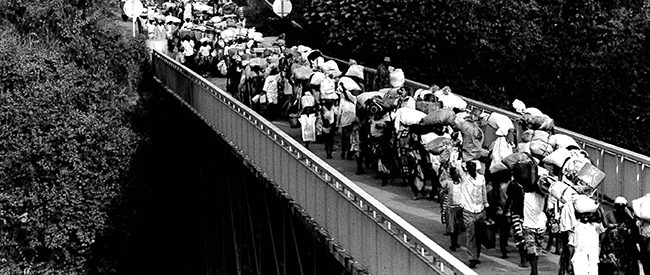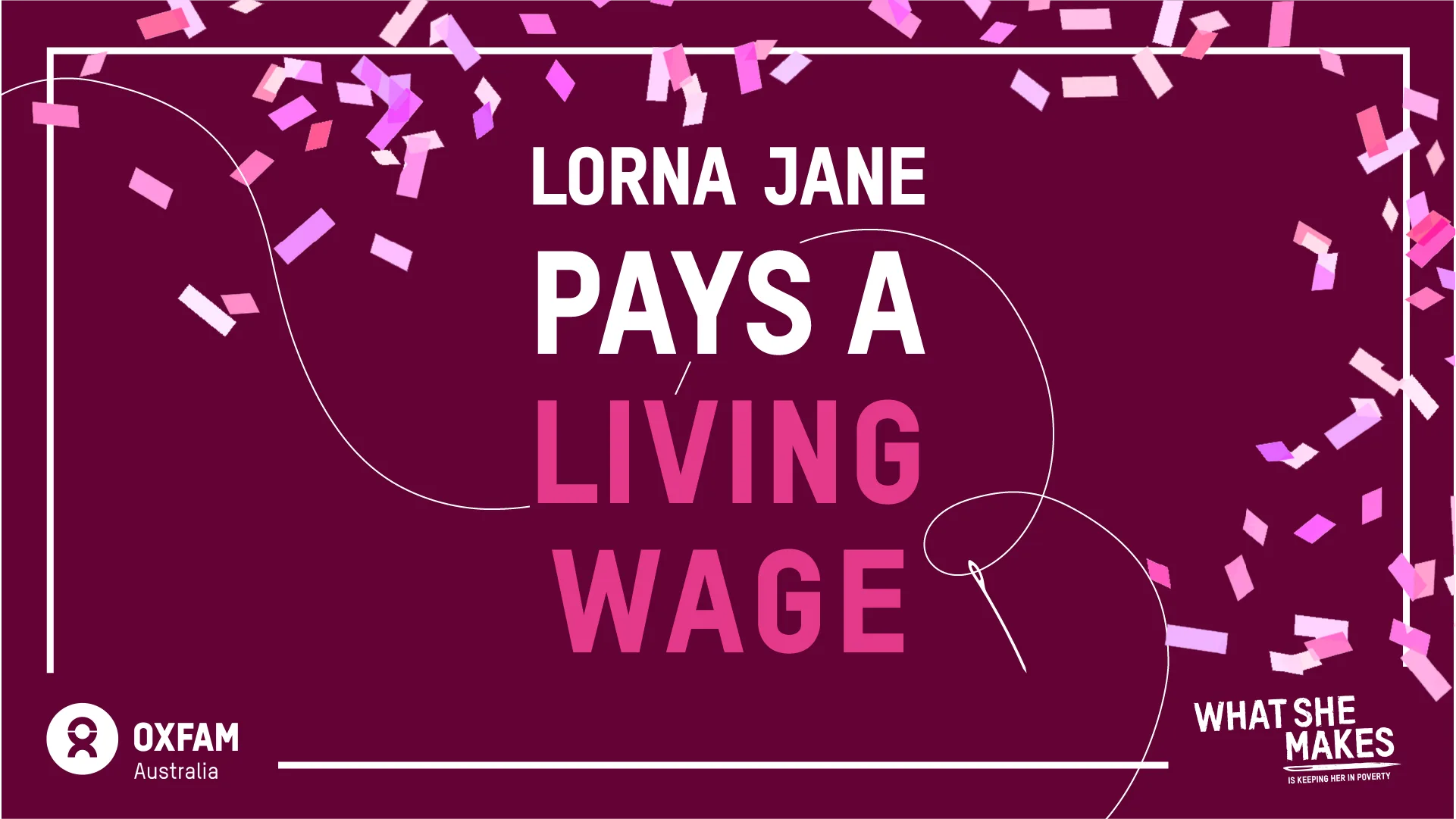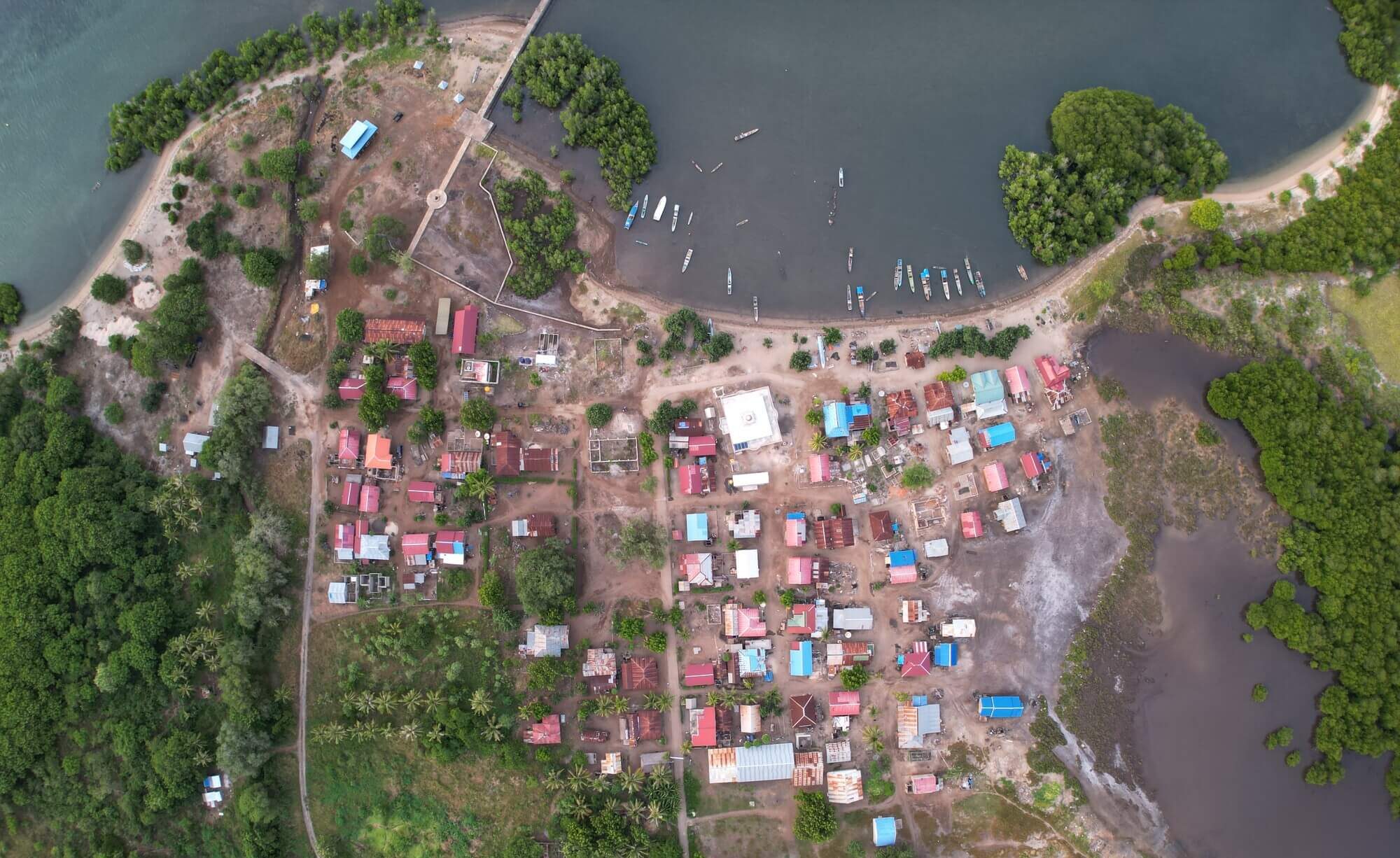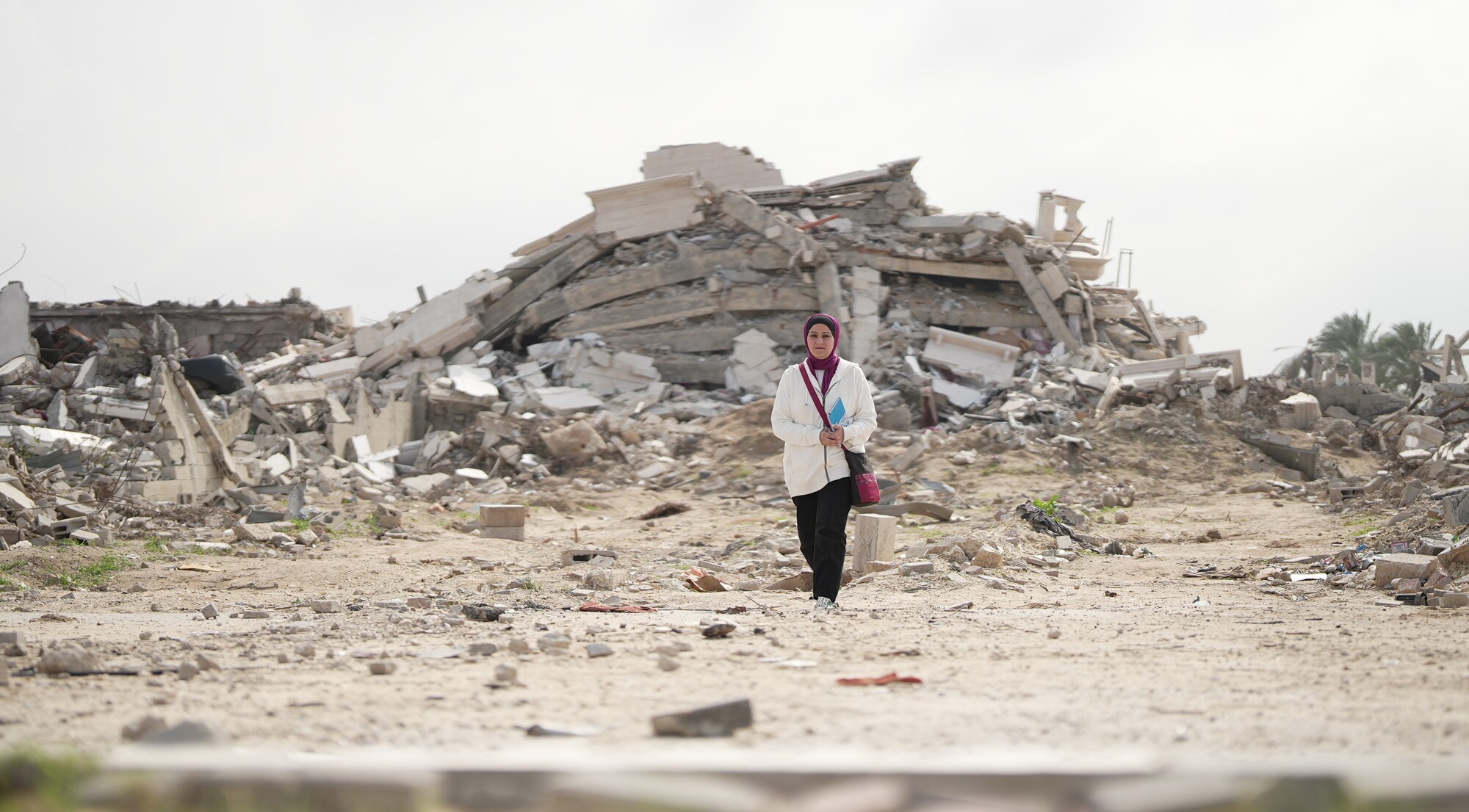In 1994, an estimated 800,000 people were massacred in Rwanda in the space of a hundred days. David Bryer was Oxfam director at the time, here he remembers what he describes as the lowest point in his 30-year humanitarian career.
Twenty years ago, the world’s governments stood by and watched as an estimated 800,000 people in Rwanda were massacred in the space of a hundred days. Aid agencies saw what was happening, but it was in vain that we lobbied to persuade Western governments to fulfil their obligations under the 1948 Genocide Convention and intervene to stop the killing.

The world’s governments stood by and watched as an estimated 800,000 people in Rwanda were massacred in the space of a hundred days.
With the number of deaths rising daily, we pressed for an urgent reinforcement of the tiny and helpless United Nations force in Kigali. But UN Security Council members would not commit their own troops. Nor would they deliver the necessary logistical support to the African nations that had offered manpower. Such callous disregard in the face of such immense suffering still haunts me; it was certainly the lowest point in my 30 years as a humanitarian worker.
Many others shared this sickening sense of failure. General Roméo Dallaire, the deeply committed commander of the ill-fated UN peacekeeping force in Rwanda, wrote that, as long as Security Council members “procrastinated, bickered and cynically pursued their own selfish foreign policies”, his men could do little to stop the killing.
For those of us trying to press governments in 1994, we were constantly told that there was too little information to go on, but there was also a wilful refusal to use the word ‘genocide’ because it would have triggered clear responsibilities under the Genocide Convention, to act. When the Council eventually agreed to a new force in May, it never materialised – in part at least because none of the big powers agreed to send their own troops.
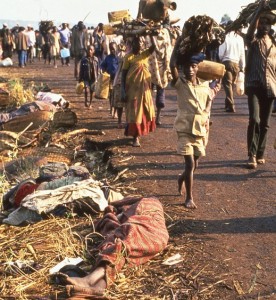
Through all that desperate period, we tried to do what we could: writing to ministers, meeting the UN Secretary General, organising a vigil in Trafalgar Square and a petition which the actor Helen Mirren and the Charity Directors took to Downing Street. I like to think of those things as precursors of the enormous numbers of vigils that marked three years since the start of Syria’s conflict last month. But back in 1994, those events probably never had much chance of moving the ‘realists’ in the foreign ministries of the world, without much more media interest.
And rare journalists like Richard Dowden aside, there was very little media coverage in the first few weeks of Rwanda’s genocide – partly because of the general lack of interest in African conflicts which is still, by and large, the case. But also probably because the scant number of international journalists who were in Africa at the time were focused on far more joyous events, the South African elections and the subsequent inauguration of President Mandela on 10 May, after which attention on Rwanda did in fact pick up.
The genocide did of course eventually end. But some of the aftermath was equally depressing, when huge numbers of refugees fled to Goma in what was then Zaire, including some, perhaps many, who had been involved in the genocide.
Sadako Ogata, the UN High Commissioner for Refugees at the time, made urgent requests for a police force of some sort to separate out those thought to be genocidaires from the mass of genuine refugees. Oxfam and some other NGOs strongly supported that call. But nothing happened, and the situation in what is now the Democratic Republic of Congo deteriorated with even greater bloodshed and UNHCR, the Red Cross and the NGOs widely blamed for ‘feeding the killers.’
Twenty years on, it is sobering to reflect on what has changed. If genocide were looming today, would there be a speedier and more united response? Just as importantly, how is the world responding today to appalling and widespread attacks on innocent men, women and children? In short, are the world’s governments any better than they were in 1994 at setting aside selfish interests – or indeed selfish lack of interest – and acting to protect civilians from mass atrocities?
At first sight, the signs are not auspicious. The invasion of Iraqand controversy over Libya still muddy the debate on when and how it is acceptable to intervene in a sovereign country to protect civilians, in effect rendering all forms of intervention open to accusations of aggressive neo-colonialism.
But Rwanda’s genocide was always the exception, not the rule, to the general assumption that foreign military action will make most crises even worse. It’s more important to ask how well the world is doing in all the other ways governments can choose to fuel or reduce conflicts around the world.
While there may not have been systematic killings on the scale of the Rwandan genocide since 1994, armed conflicts and massive violations of human rights continue, with hundreds of thousands of people killed, raped or terrorized every year. Some things have got better. After ten years of NGO campaigning, an Arms Trade Treaty was eventually agreed last year. The UN Security Council now talks about protecting civilians, and puts that in the mandates of peacekeeping operations, far more than it did.
If genocide were looming today, would there be a speedier and more united response?
But different countries still give arms to different sides to fuel Syria’s conflict. Terrible violence in countries such as the Central African Republic still struggles for international attention. Despite the growth in UN peacekeeping, the world’s richest countries provide precious few troops or police to that effort. The permanent members of the UN Security Council have still not yet collectively agreed to renounce their veto in cases of mass atrocities. And my erstwhile colleagues in Oxfam face ever-bigger humanitarian challenges not only because of the rising tide of climate-related disasters, but because the world is still not as good as it should be at resolving conflicts.
The twentieth anniversary of the Rwandan genocide will be a painful moment for millions, especially the Rwandan survivors still trying to heal their shattered lives. For the rest of us, it should be a time to remember how much more there is still to be done to protect civilians in every corner of the world, from every kind of atrocity.
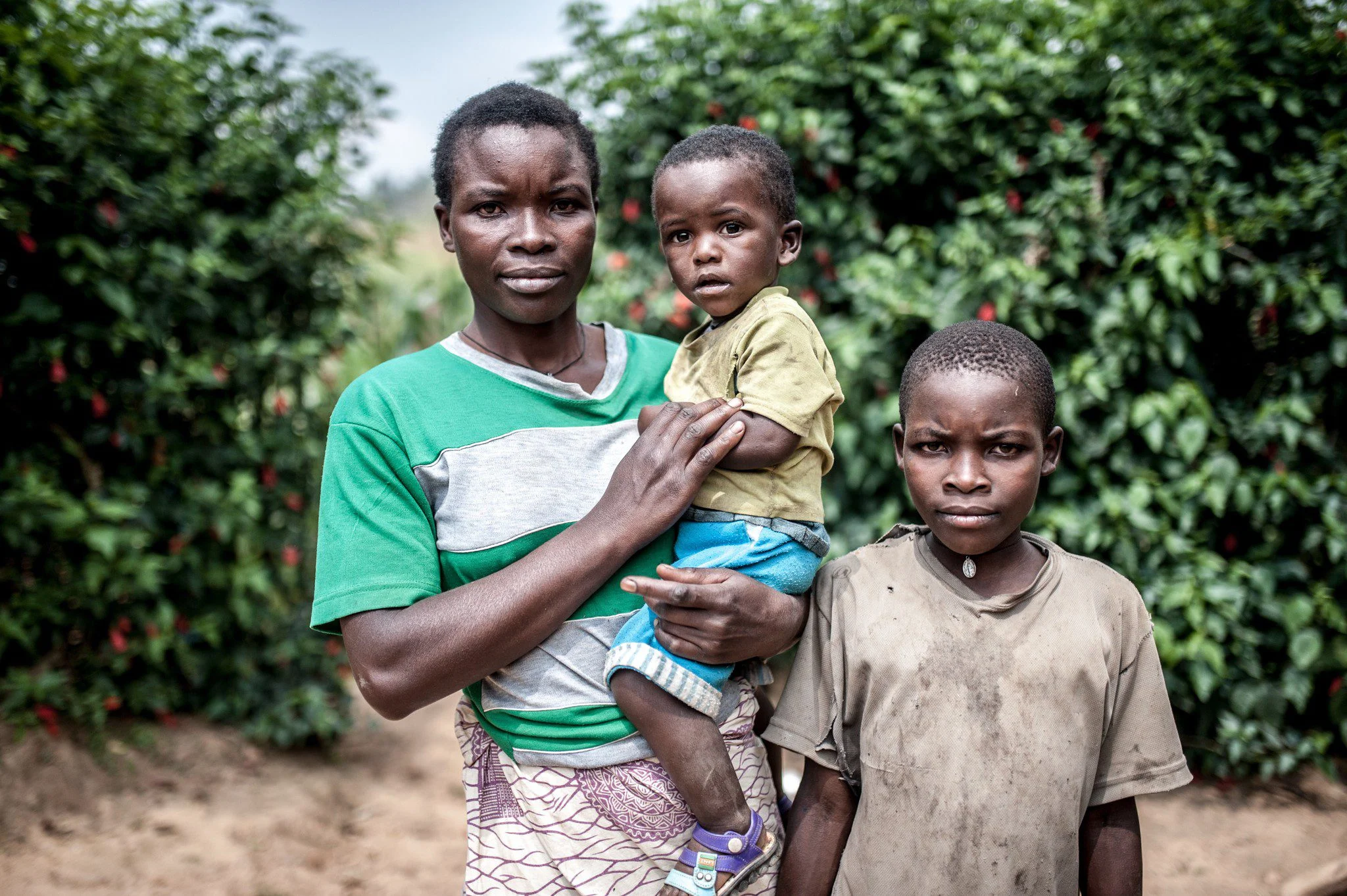
Donate to help end poverty in Rwanda
Your vital gift can help Oxfam provide families in Rwanda with the skills and resources to break free of the legacy of poverty left by the genocide of the 1990s.
